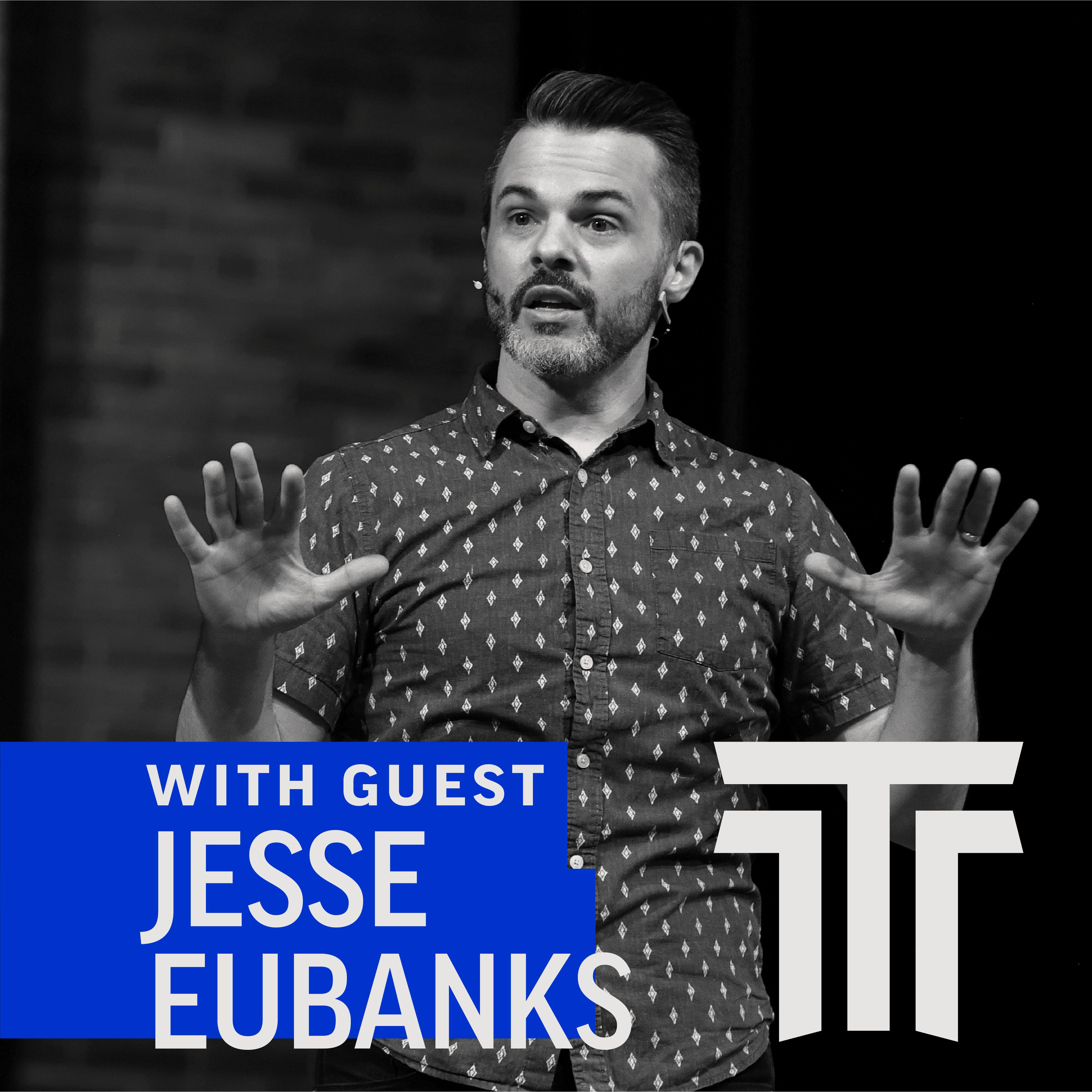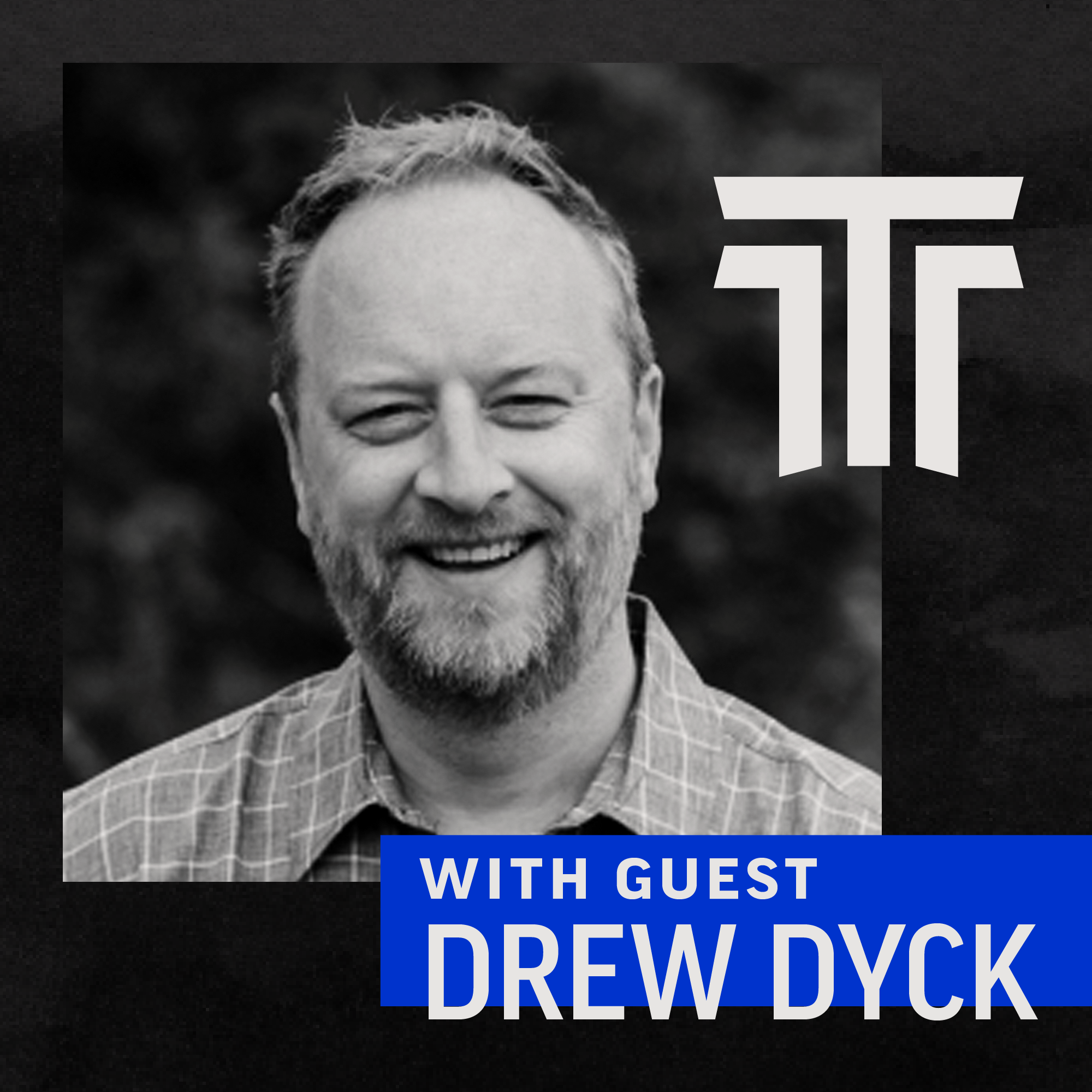A Skeptic's Guide to the Enneagram with Jesse Eubanks
Is the enneagram demonic? Or a tool Christians can use for good?
New Age. Demonic. A self-obsessive trap. The enneagram has taken much heat from critics, many Christians being chief among them. But is there a bigger, redemptive case for the enneagram in the Christian life? Jesse Eubanks, enneagram coach, host of The EnneaCast podcast, and author of “How We Relate: Understanding God, Yourself, and Others Through the Enneagram,” believes so. Today, he joins Patrick to address some of the toughest critiques of the enneagram and explain how the truth within the...
Read MoreNew Age. Demonic. A self-obsessive trap. The enneagram has taken much heat from critics, many Christians being chief among them. But is there a bigger, redemptive case for the enneagram in the Christian life? Jesse Eubanks, enneagram coach, host of The EnneaCast podcast, and author of “How We Relate: Understanding God, Yourself, and Others Through the Enneagram,” believes so. Today, he joins Patrick to address some of the toughest critiques of the enneagram and explain how the truth within the test can be utilized for good, both in the church and through cultural engagement. He addresses why the enneagram is so popular, whether or not the test infringes on biblical soul care, the temptation to give your personality type more explanatory power than it can handle, and whether or not the enneagram reinforces the harmful teachings of self-expressive individualism. Plus, is identity internal or external, and is there a risk of the test allowing narcissism to set in? Listen now!
Have you benefitted personally from Truth Over Tribe or seen it have a positive effect on someone you know? have you used the podcast, book, or blog as a catalyst for conversation on polarizing topics?
We want to hear about it!
Share your story at choosetruthovertribe.com/story.
Ok, truth time... Did you like this episode? Tell us by leaving a rating or review! 🌟🌟🌟🌟🌟 If you did, you won't want to miss what's next (so subscribe now!). And help a friend by sharing this with them. Thank you! 🙏
Plus, the conversation is just beginning! Follow us on Twitter, Facebook, and Instagram to join in on the dialogue! If you disagree with anything in this episode, we'd love to hear your thoughts here. Want to learn more about Truth Over Tribe? Visit our website and subscribe to our weekly newsletter.
Want more truth over tribe? Check out our resources!
Resources

Resources
Check out our resources!Recent Episodes

Should Christians Be Politically Involved or Withdrawn? with Michael Bird
Which came first: your political beliefs or the Bible’s stance on political issues? Too often, many Christians start with a political position and then go to the Bible seeking justification for their predetermined beliefs. But how can we truly know what the Bible says on specific political issues? And how involved should Christians be when it comes to politics? This week, Michael Bird, a New Testament scholar, Anglican priest, and author of “Jesus and the Powers,” joins Patrick to share a kingdom-oriented approach to politics and current events. He starts by explaining political theology and why Christians need to read the Bible from a more political perspective. He discusses how everyday Christians should think about the relationship between church and state and how Christians have failed in public discipleship. Plus, why would God risk sharing his rule and reign with humanity, and how does he hold government leaders accountable? Listen now!Have you benefitted personally from Truth Over Tribe or seen it have a positive effect on someone you know? have you used the podcast, book, or blog as a catalyst for conversation on polarizing topics? We want to hear about it! Share your story at choosetruthovertribe.com/story.Ok, truth time... Did you like this episode? Tell us by leaving a rating or review! 🌟🌟🌟🌟🌟 If you did, you won't want to miss what's next (so subscribe now!). And help a friend by sharing this with them. Thank you! 🙏Plus, the conversation is just beginning! Follow us on Twitter, Facebook, and Instagram to join in on the dialogue! If you disagree with anything in this episode, we'd love to hear your thoughts here. Want to learn more about Truth Over Tribe? Visit our website and subscribe to our weekly newsletter.Want more truth over tribe? Check out our resources!

Trump, Harris, or Neither: Who Should Christians Vote For?
We’re officially less than a month out from Election Day 2024. In the last several weeks, we’ve had a number of Christians reach out asking a variety of questions: “Can I really support Donald Trump?” “Should I vote for Kamala Harris?” “Should I just vote for a third party, or is that throwing away my vote altogether?” We’ve been asking ourselves these same questions. So today, we’re enlisting some help. We reached out to a few friends, all of whom are Christians and none of whom are voting for the same Presidential candidate next month. First, we’ll hear from Brett Lloyd, a longtime polling expert with Independent Center, on why he’s chosen the independent path. Then, David French, an author and former constitutional litigator, joins us to explain why he’s supporting Kamala Harris. Erik Reed, a pastor and podcast host, shares his reasons for supporting Donald Trump. And finally, Lauren Onak, the VP candidate for the American Solidarity Party, explains why she believes a third-party vote is the answer. Our hope for this episode is that if you’re an undecided voter, you’ll walk away feeling more confident about how to steward your vote next month. And if you’re already decided, we hope hearing these varying perspectives helps soften your heart to fellow believers who are voting differently than you. Listen now!Have you benefitted personally from Truth Over Tribe or seen it have a positive effect on someone you know? have you used the podcast, book, or blog as a catalyst for conversation on polarizing topics? We want to hear about it! Share your story at choosetruthovertribe.com/story.Ok, truth time... Did you like this episode? Tell us by leaving a rating or review! 🌟🌟🌟🌟🌟 If you did, you won't want to miss what's next (so subscribe now!). And help a friend by sharing this with them. Thank you! 🙏Plus, the conversation is just beginning! Follow us on Twitter, Facebook, and Instagram to join in on the dialogue! If you disagree with anything in this episode, we'd love to hear your thoughts here. Want to learn more about Truth Over Tribe? Visit our website and subscribe to our weekly newsletter.Want more truth over tribe? Check out our resources!

Are Christians Really Called to be World Changers? with Drew Dyck
How can we glorify God and bless others when we’re stretched to capacity? Are we really supposed to change the world when there’s work to be done, the house needs cleaning, and the kids are screaming? Today’s guest, Drew Dyck, is here to let us all in on a little secret: God doesn’t expect you to do everything! He wants you to be faithful, not famous, and just show up in your everyday, ordinary life. That’s actually how we change the world! Drew is a writer, speaker, and the author of the countercultural book, “Just Show Up.” Today, he starts by explaining where our misled desire to change the world came from and how social media has led many to believe that “celebrity Christian” status is both desirable and within reach. He shares why self-expressive individualism and authenticity are overrated and issues a call to remember the importance of our roles in others’ lives. He ends with a challenge: where are the places that all Christians must “show up” for each other? Listen now!Have you benefitted personally from Truth Over Tribe or seen it have a positive effect on someone you know? have you used the podcast, book, or blog as a catalyst for conversation on polarizing topics? We want to hear about it! Share your story at choosetruthovertribe.com/story.Ok, truth time... Did you like this episode? Tell us by leaving a rating or review! 🌟🌟🌟🌟🌟 If you did, you won't want to miss what's next (so subscribe now!). And help a friend by sharing this with them. Thank you! 🙏Plus, the conversation is just beginning! Follow us on Twitter, Facebook, and Instagram to join in on the dialogue! If you disagree with anything in this episode, we'd love to hear your thoughts here. Want to learn more about Truth Over Tribe? Visit our website and subscribe to our weekly newsletter.Want more truth over tribe? Check out our resources!